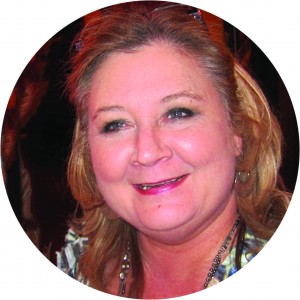Doing is Different…
Than Dreaming, Wishing, or Hoping. Put Action to Your Motivation

Beth Standlee
By Beth Standlee, CEO, TrainerTainment
Do you ever find yourself wishing your party program was bigger or hoping that a giant company event gets booked? Do you dream your team will perform at such a high level there will be standing room only inside your center? If you don’t, I think you should. I believe you must get the picture in your mind before it can become reality.
You can’t stop there though. Hopefully the dream creates the energy you need to “do something.” I have a quote I keep in front of me at all time: “Motivation gets you started, but habit keeps you going.”
Sometimes I run into owners and managers who have a habit of wishing or hoping things will get better. The conversations I have sound like this: “Beth, how do you find someone who will really go out and drum up new business? I’ve tried and failed a number of times. We just hired this new gal, and I am really hoping that this time it works.”
I then ask, “What do you mean? Does your strategy of hope include clear expectations? Have you provided training? What kind of support is in place to help her grow? What systems do you have to measure her success?”
It’s at this point in the conversation that things get pretty quiet. When it comes to event sales in the family entertainment environment, I have found there are often more questions than answers. Don’t get me wrong, there are a lot of places that are doing a great job with the sales teams in their centers. But all too often we bump into locations where they believe the general manager should be responsible for the new business development and booking all group sales. I happen to think this is a strategy that is not focused on event sales at all.
If you break each of those questions down, there are some top-line answers that I would offer. Does your group sales strategy include clear expectations? Every team member needs to understand their role. For the sales person, their ultimate accountability is to generate new business. Define that number. Sales people, better than anyone, understand the numbers. It is the measure of whether or not we are winning the game. The total sales number is the result of the right kind of effort.
In answering the question, “What causes sales?” I believe the best daily measurement is the number of meaningful conversations. What I mean by that is that you spoke with a potential buyer and you have a plan for a “next step.” Maybe you sold them. That’s a meaningful conversation for sure! Maybe you set the next appointment or you are putting together a quote for their event. I even count people who told me to “buzz off” as a meaningful conversation because I definitely know what to do with them… I mark them off my list! Anyway, there is a lot of clarity around the daily activity that creates sales. I also like to capture what got proposed (sales dollars) and what got closed.
Question number two asks whether or not you have a training plan for this new person. So many times, I see facilities hire what they think is a skilled sales person and so all the training they need is on the products they have to sell at the center. All too often, this results in that “I tried and failed” experience for the FEC manager or owner. Good sales training is needed (always). I have personally been in sales all of my career and continue to study and learn on a daily basis.
Question three looks at the support systems that are in place. Sales and operations commonly clash in any business. There is a lot of work that must be done with these two entities. At the very least, plan to have a weekly BEO (Banquet-Event Order) meeting with sales and operations so that they can plan for the upcoming seven to 10 days and debrief the last seven days.
Finally, what systems do you have in place to measure success? You must implement a weekly KPI (Key Performance Indicators) sheet. Heck, you might want to call it a KSI (Key Success Indicator). I think at the very minimum that sheet should track:
1. The number of meaningful conversations.
2. The number of upcoming events (at least 3-13 weeks out).
3. The amount of proposed business.
4. The amount of closed business.
5. The actual sales from the prior week.
I can make a really strong case to focus on group sales. My number one reason is that so many people come to your center for the first time or return after a long absence because they came with a group. Group sales are lucrative. You do not and should not equate a group sale with a discounted rate. GROUP does not mean discounted. Sometimes it may mean they pay a premium, especially if they want a private event.
I really want to encourage you to dream big when it comes to group events. And once you have the dream of what you want it to be, whether that’s based on total dollars, number of events for the year, or total number of people, then don’t just wish or hope it will happen. Create that strategy of what you will DO next.
Remember, the motivation of the dream will get you started and then the habit of sticking with your plan will create the results you are looking for. If you need some help, call me. We have lots of good plans already in place.
Beth is the CEO of TrainerTainment LLC, a training company devoted to the family entertainment and hospitality industries. Beth and her team are focused on helping the companies they serve make more money through sales, guest service, leadership and social media marketing training. Training products and services are delivered in person, through books and DVDs, and virtually with e-learning courses, webinar development and 24/7 online access. Visit her company’s website at www.trainertainment.com.




